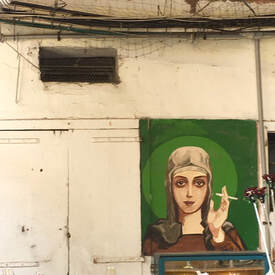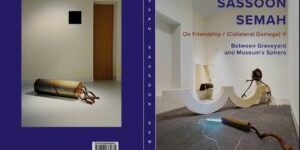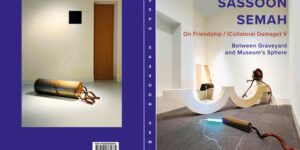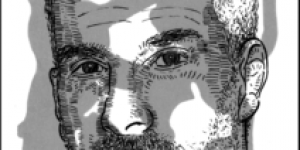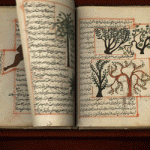Sophie Levy ~ Fiction, Poetry, And The Shaping Of Mizrahi Cultural Consciousness
No Comments yet“So sometimes people think we are Arabs
and they are Jews?
[My nephew’s] words make flocks of birds fly through my body
ripping my blood vessels in the commotion
and I want to tell him about my Grandmother Sham’a
and Uncle Moussa and Uncle Daoud and Uncle Awad
But at the age of six he already has
Grandmother Ziona
Grandmother Yaffa
lots of uncles
and fear and war
he received as a gift
from the state.”
– Adi Keissar, “Clock Square”
I read Adi Keissar’s poetry for the first time at fifteen years old, when my mother forwarded me a link to Haaretz’s Poem of the Week under the headline “Who’s who? Who’s an Arab, who’s a Jew?”
The poem was a vignette of a conversation between Keissar and her young nephew as they walked beside the clock tower in Jaffa, tracing the aftermath of his distant observation of a man speaking Arabic. With each consecutive line, I felt like an anvil had been dropped on my chest (in the best way possible). Why did a Persian girl from Los Angeles who hadn’t really thought about her Judaism in years feel such a punch in the gut from a poem by a Yemeni woman in Israel? It felt incomplete and a little tacky to exclusively attribute my reaction to our shared Judaism. There was another layer to consider— a quiet but strong common denominator between the way I thought of my family and the way Keissar wrote about hers, even though I grew up hearing Farsi spoken more than Arabic, and I am American, not Israeli.
I only heard the word Mizrahi used to describe people from Middle-Eastern and North African Jewish backgrounds a few weeks before I read “Clock Square.” It made sense to me that there was another word for us out there—for Jewish people who called ourselves Sephardi even though our supposedly Spanish lineage seemed less-than-factual. It felt good to become aware of this new, audibly articulated way of making a distinction I wanted made—not because I resented the Sephardi label, but because I noticed something different about the community from which I came, and those differences were bound to Iran, not Spain. I let the word roll around inside my head and off my tongue. Mizrahi. So that’s what I’m called.
The complete article The Current – Fall 2019: http://www.columbia-current.org/fiction-poetry-and-the-shaping-of-mizrahi-cultural-consciousness.html
You May Also Like
Comments
Leave a Reply
